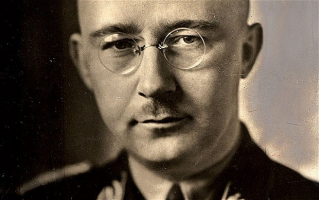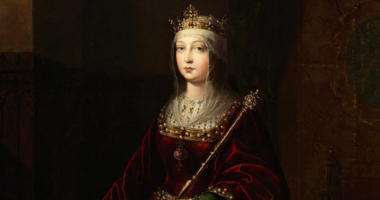Top 10 Interesting Facts about Mahatma Gandhi
Better recognized by the honorific moniker Mahatma (literally, "Great Soul") is Mohandas K. Gandhi. He was a lawyer who advocated against colonialism and was ... read more...well-known for using nonviolent tactics to oppose British control in India. Gandhi worked to improve society in addition to supporting the war for Indian independence. He campaigned against the current caste system in India and strove to end the cruel treatment of untouchables. Additionally, he worked for social justice causes like equality and fraternity. The public has been inspired by his views and principles to bring the strong colonial empire to its knees. During a particularly turbulent period in India's history and as the "father of the nation," Mahatma Gandhi was a strong advocate for peace. Here are the ten most interesting facts about Mahatma Gandhi you should not miss!
-
One of the most interesting facts about Mahatma Gandhi is he was influenced by religious concepts. Gandhi's life exposed him to other religions, including Jainism. The youngest child of his father's fourth wife was Gandhi. His father, Karamchand Gandhi, who served as the dewan (chief minister) of Porbandar, the regional capital of a minor principality in western India (in what is now Gujarat state), was not particularly well-educated. However, he was a skilled administrator who knew how to navigate between the erratic princes, their patient subjects, and the domineering British political officers.
Putlibai, Gandhi's mother, was entirely engrossed in religion, did not care much for finery or jewelry, split her time between her home and the temple, frequently fasted, and spent days and nights nursing whenever there was illness in the family, exhausting herself in the process. Mohandas was raised in a home that was heavily influenced by Jainism, an Indian religion with strict morals that emphasizes nonviolence and the idea that everything in the cosmos is everlasting. Vaishnavism is the worship of the Hindu god Vishnu. Thus, he took vegetarianism, fasting for one's own purification, and respect between followers of different creeds and sects for granted. He also assumed that everyone would practice ahimsa (noninjury to all living beings).
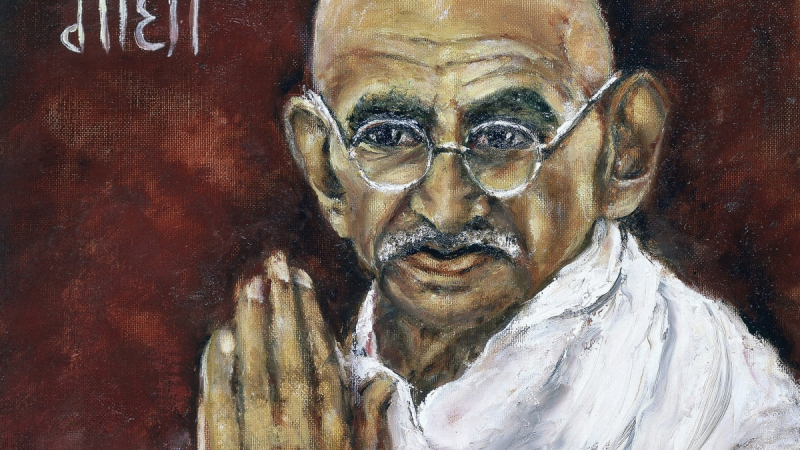
Photo: https://www.history.com/ 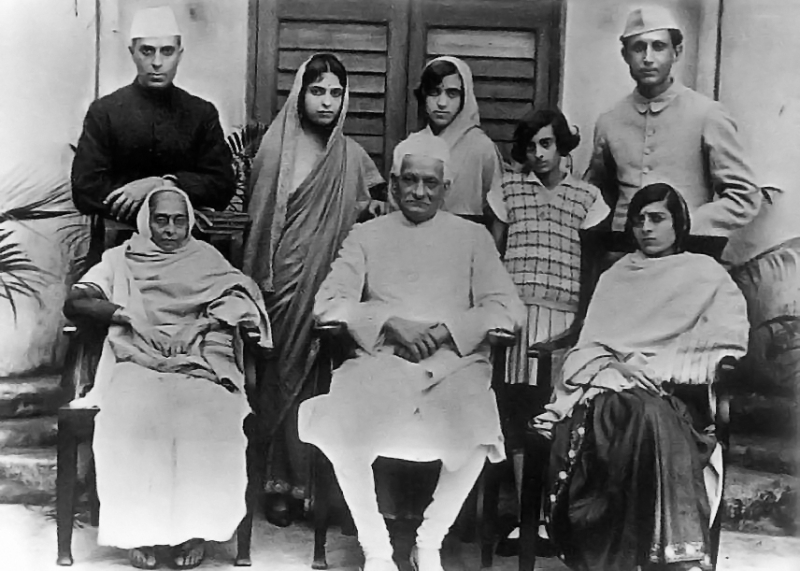
Photo: https://en.wikipedia.org/ -
The educational resources of Porbandar were inadequate; in the primary school that Mohandas attended, the students used their fingers to write the alphabet in the dirt. For his benefit, his father rose to the position of dewan at Rajkot, another princely kingdom. Mohandas occasionally received awards and scholarships from nearby schools, but overall, his performance was only average. He was assessed as "excellent in English, fair in Arithmetic, and weak in Geography; behavior very good, bad handwriting" in one of the final assessments. He missed a year of school since he got married at the age of 13. He was a shy kid who struggled in both the classroom and on the sports field. When Gandhi wasn't caring for his ailing father, who passed away shortly after, or assisting his mother with her home duties, he enjoyed taking long, solitary walks outside.
In his own words, he had learned "to obey the elders' commands, not to scan them." Given his severe passivity, it is not surprising that he experienced adolescent rebellion, which was characterized by covert atheism, small-time thefts, covert smoking, and—most shockingly for a child born into a Vaishnava family—meat-eating. His youth was probably not any more turbulent than that of the majority of kids his age and in his class. What was remarkable was how his adolescent misdeeds were resolved.
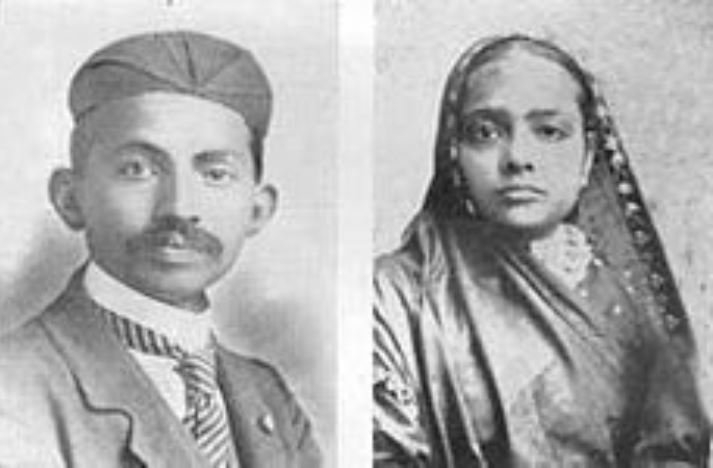
Photo: https://sidoni.net/ 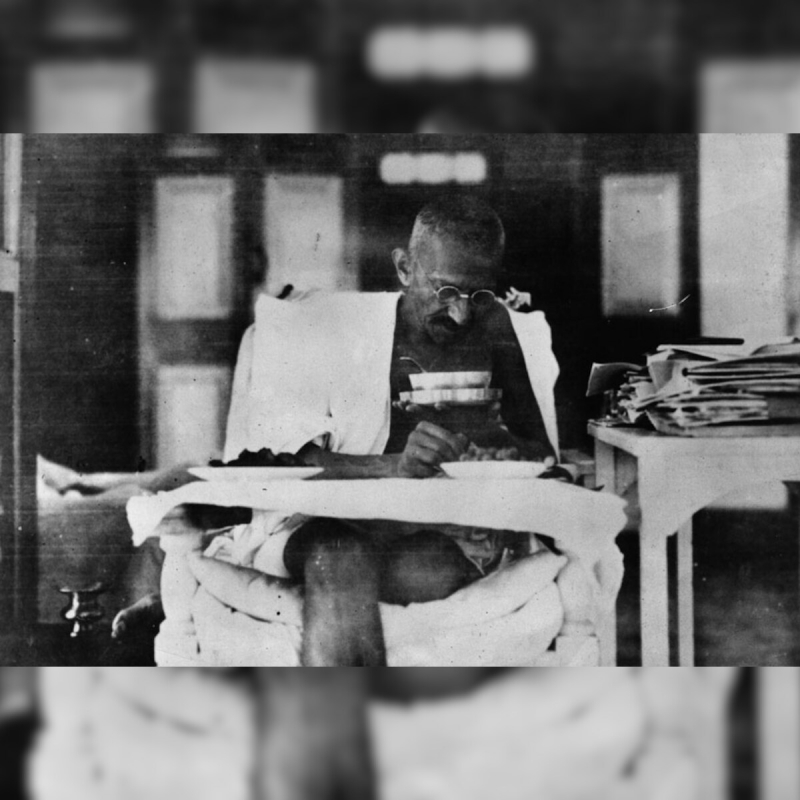
Photo: https://www.news18.com/ -
Mohandas managed to pass the University of Bombay's (now University of Mumbai's) matriculation test in 1887 and enrolled in Samaldas College in Bhavnagar (Bhatnagar). He had to immediately switch from Gujarati to English, making it challenging for him to understand the lessons.
His family was discussing his future in the meanwhile. If left to his own devices, he would have preferred to become a doctor. But aside from the Vaishnava prejudice against vivisection, it was obvious that he would need to become a barrister if he wanted to continue the family history of holding high office in one of the Gujarati states. Mahatma Gandhi, who wasn't having much fun at Samaldas College, leaped at the chance to travel to England. His impression of England as a young boy was that it was "a land of thinkers and poets, the very center of civilization."
But before the trip to England could happen, there were several obstacles to be overcome. Additionally, his mother was hesitant to subject her youngest kid to unknown temptations and hazards in a foreign country because his father had left the family with little property. But Mohandas was adamant about going to England. One of his brothers raised the required funds, and his mother's concerns were allayed when he swore off booze, women, and meat while away from home. The final barrier, a directive from the Modh Bania subcaste (Vaishya caste), to which the Gandhis belonged and which barred travel to England as a violation of Hinduism, was disobeyed by Mohandas, who traveled in September 1888. He joined the Inner Temple, one of the four London law institutions, ten days after his arrival (The Temple).
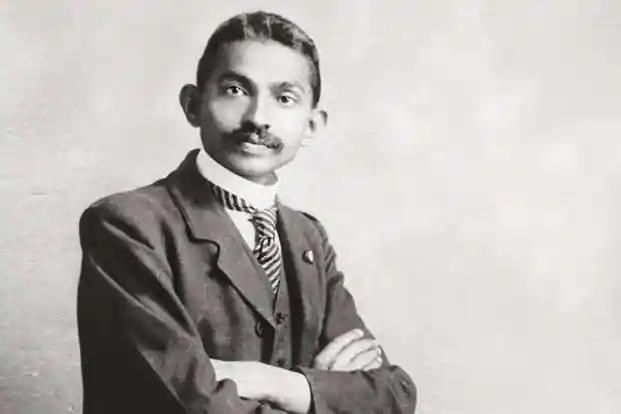
Photo: https://www.livemint.com/ 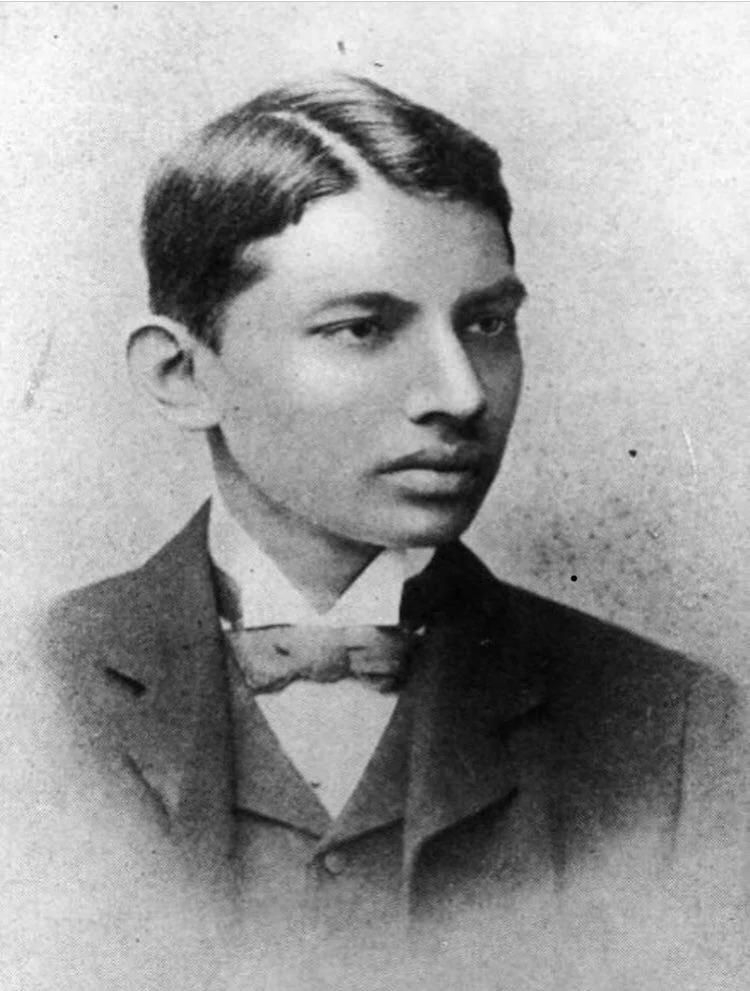
Photo: https://www.reddit.com/ -
One of the most interesting facts about Mahatma Gandhi is he found it difficult when living in London. Gandhi took his academics seriously and attempted to refresh his knowledge of Latin and English by sitting for the University of London matriculation exam. But rather than focusing on his academic goals during his three years in England, he was more preoccupied with moral and emotional matters. He found it difficult to adjust to London's sophisticated lifestyle after living in Rajkot's semi-rural environment. He felt uncomfortable as he laboriously tried to acclimate himself to Western cuisine, attire, and manners. His friends cautioned him that going vegetarian would ruin both his schoolwork and his health, and it became a constant cause of humiliation for him.
Fortunately for him, he discovered a vegetarian restaurant and a book offering a rational defense of vegetarianism. From that point on, he became a vegetarian out of conviction rather than just as a result of his Vaishnava upbringing. The young man was pitifully shy, but his missionary fervor for vegetarianism helped bring him out of his shell and gave him a new posture. He joined the London Vegetarian Society's executive committee and began attending its conferences and publishing papers in its journal.
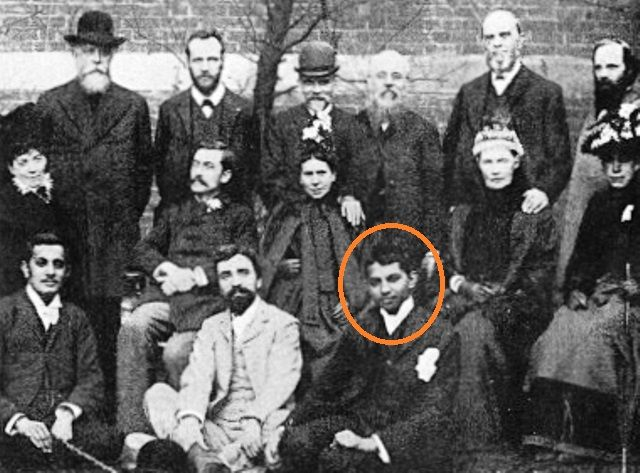
Photo: https://wikinbio.com/ 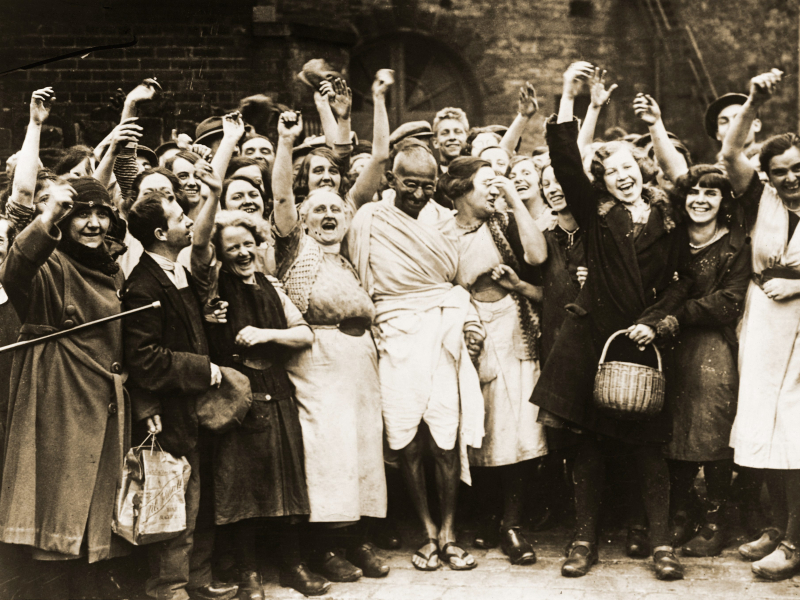
Photo: https://www.historyextra.com/ -
Gandhi will face chances and problems in Africa that he could never have imagined. He would ultimately stay there for more than two decades, only briefly visiting India again in 1896–1897, which is considered one of the most interesting facts about Mahatma Gandhi. There were the births of his two youngest of four children.
Gandhi was instantly made aware of the racial prejudice present in South Africa. He was asked to remove his turban in a Durban court by the European magistrate; he declined and walked out. A few days later, while traveling to Pretoria, he was abruptly ejected from a first-class rail car and left shivering and dejected at the Pietermaritzburg rail station. As he continued on that voyage, a white stagecoach driver assaulted him for refusing to move to the footboard to make place for a European passenger, and eventually, he was denied access to hotels designated "for Europeans only." These humiliations were a common occurrence for Indian laborers and dealers in Natal, who learned to accept them with the same resignation they accepted their meager pay.
Gandhi's response, not his experience, was novel. He had not displayed any overt aggression or self-aggrandizement up to this point. He reacted badly to the insults thrown at him, but something occurred to him. In retrospect, he felt that the trip from Durban to Pretoria was one of the most original experiences of his life; it was also his turning point. He would no longer accept injustice as a component of South Africa's natural or unnatural order; instead, he would stand up for his dignity as an Indian and as a man.
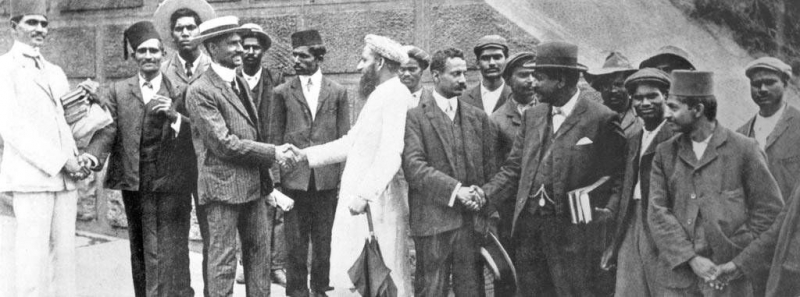
Photo: https://amuse.vice.com/ 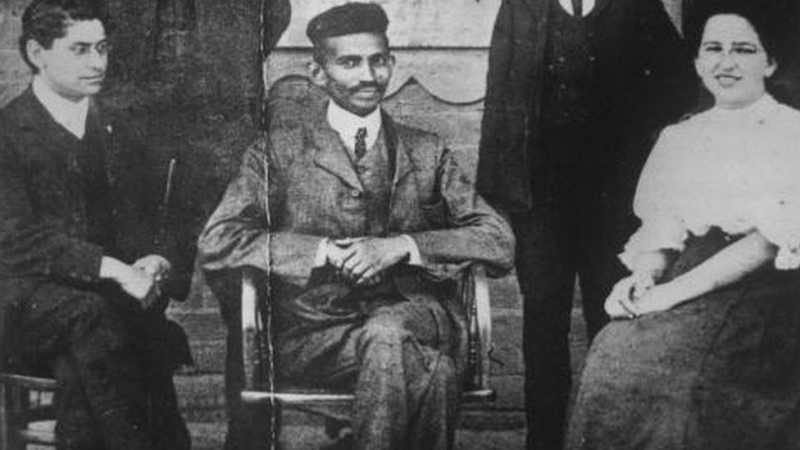
Photo: https://www.bbc.com/ -
Gandhi's legal income peaked at £5,000 per year, although he had little interest in earning money and frequently spent his savings on his public activities. He maintained an open table in Durban and then in Johannesburg; his home served as a sort of hostel for younger colleagues and political associates. For his wife, who Gandhi could not have dedicated himself to public issues without her great selflessness, patience, and endurance, this was kind of a test. Their lives tended to converge into a sense of community as he broke free from the traditional ties of family and property.
Gandhi was drawn inexorably into a life of austerity, manual labor, and simplicity. In 1904 after reading John Ruskin’s Unto This Last, a critique of capitalism, he set up a farm at Phoenix near Durban where he and his associates might live by the sweat of their brows. This is one of the most interesting facts about Mahatma Gandhi. In honor of the Russian writer and moralist whom Gandhi respected and wrote to, Tolstoy Farm, another colony that Gandhi fostered sprouted up six years later close to Johannesburg. These two towns served as the prototypes for the more well-known ashrams (religious retreats) in India, Sevagram, and Sabarmati near Ahmedabad (Ahmadabad).
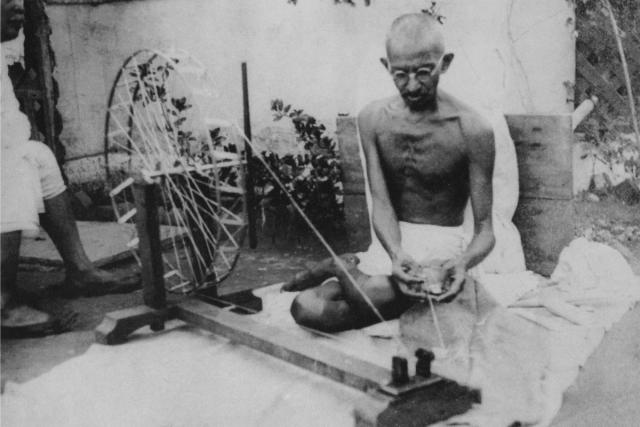
Photo: https://www.marxist.com/ 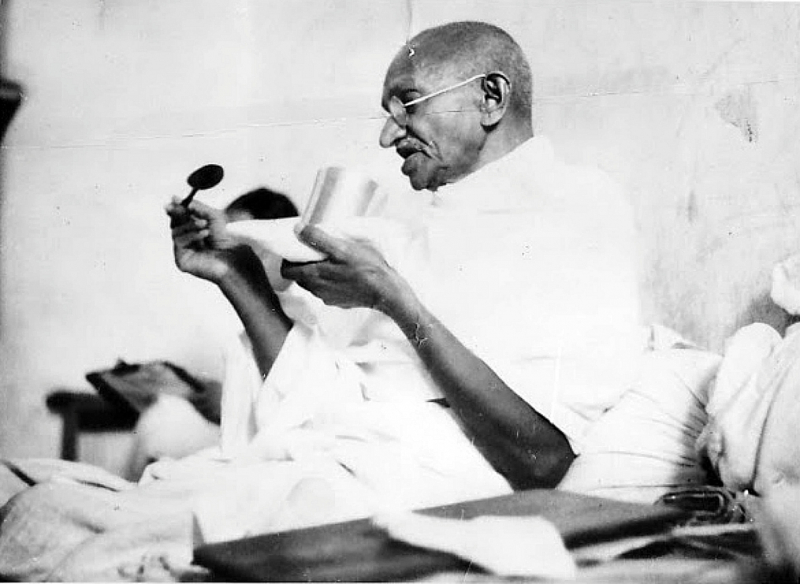
Photo: https://indusscrolls.com/ -
Gandhi was not a person who held grudges. He contended that the Indians who claimed full citizenship in the British crown territory of Natal at the start of the South African (Boer) War in 1899 were obligated to protect it. 300 of the 1,100 volunteers that made up his volunteer ambulance corps were free Indians, and the remaining 900 were slave laborers. Barristers, accountants, artisans, and laborers made up the diverse group. Instilling in them a sense of service to those they perceived as their oppressors were Gandhi's responsibility. Gandhi at the front lines of battle was insightfully portrayed by the Pretoria News editor.
The Indians in South Africa received little relief from the British victory in the war. Only Boers and Britons were to form a partnership under the new government in South Africa. Gandhi realized he had failed to leave a noticeable influence on the South African Europeans, except for a few Christian missionaries and idealistic young people. A particularly humiliating law for the registration of its Indian people was promulgated by the Transvaal government in 1906. In September 1906, at a large protest rally in Johannesburg, the Indians vowed to reject the ordinance if it became law despite their opposition and to bear the consequences of their defiance, led by Gandhi. Thus, satyagraha ("devotion to truth"), a novel method for opposing enemies amicably and engaging them in conflict without resorting to violence, was formed. Satyagraha is a technique for righting wrongs through inviting rather than inflicting suffering.
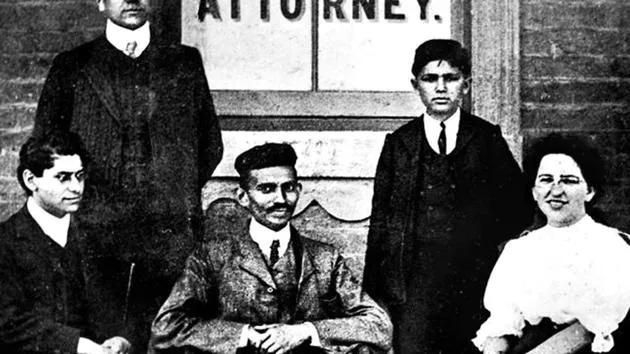
Photo: https://www.hindustantimes.com/ 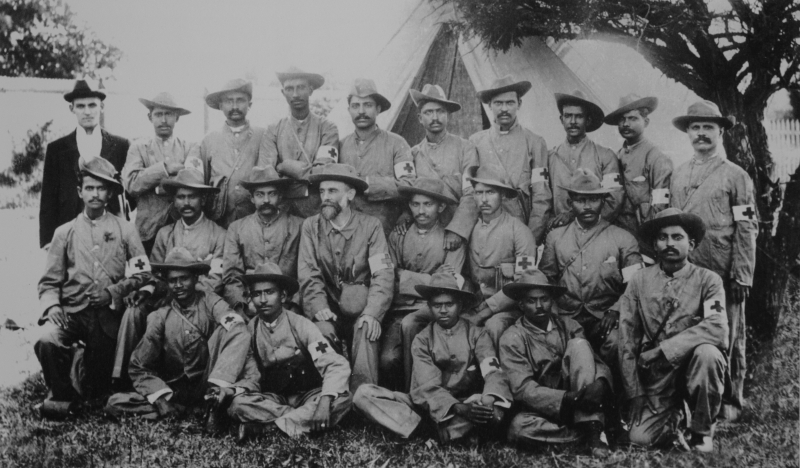
Photo: https://www.hindustantimes.com/ -
At the age of 45, Gandhi traveled back to India in 1915. He organized rural and urban laborers to demonstrate against discrimination and high land taxes. Gandhi called for nationwide strikes in opposition to the oppressive Rowlatt Acts while also recruiting soldiers for the British Indian Army.
However, by February 1919, the British had insisted on passing the Rowlatt Acts, which allowed the government to detain anybody accused of sedition without a trial, despite considerable Indian opposition. Gandhi ultimately declared a satyagraha fight after being provoked and displayed a sense of alienation from the British raj. As a result, the subcontinent saw a virtual political earthquake in the spring of 1919. He was forced to hold back because of the subsequent violent uprisings, most notably the Massacre of Amritsar, which saw almost 400 Indians killed by British-led forces while they were gathering in an open space in Amritsar, in the Punjab region (now in Punjab state).
In 1921, Gandhi assumed control of the Indian National Congress. He orchestrated campaigns all over India to push for self-rule, as well as to reduce poverty, advance women's rights, foster inter-ethnic and religious harmony, and abolish caste-based discrimination.
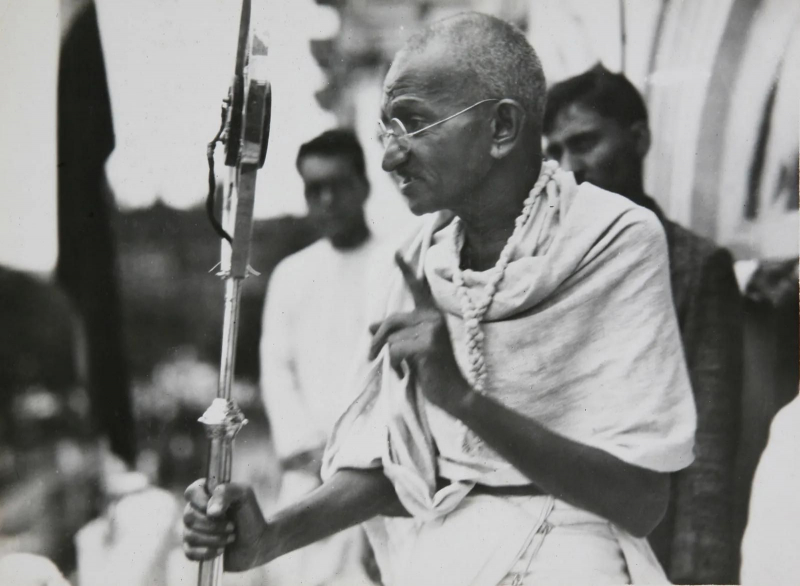
Photo: https://www.britannica.com/ 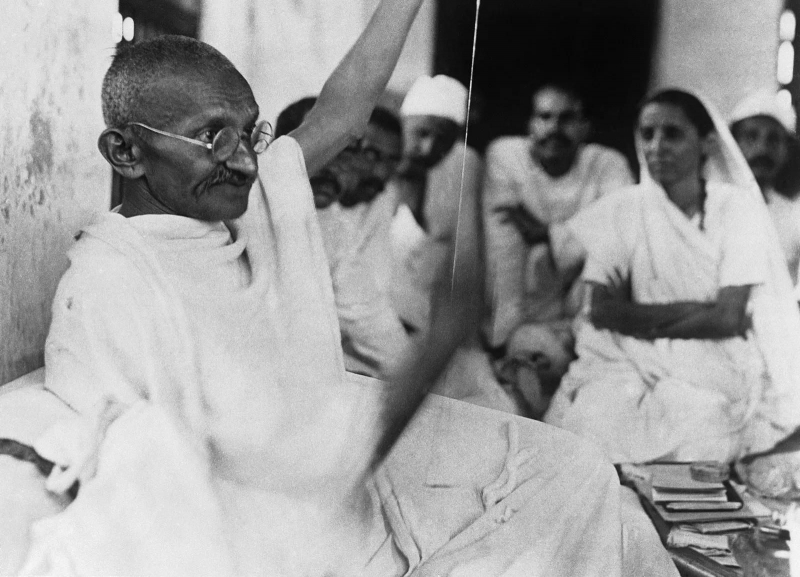
Photo: https://www.britannica.com/ -
Gandhi was seen as a spent force and showed little interest in active politics in the middle of the 1920s. But in 1927, the British government established a constitutional reform commission led by eminent English jurist and politician Sir John Simon, which did not include a single Indian. The political tempo increased when Congress and other parties boycotted the commission. Gandhi proposed the important resolution at the Congress session (assembly) in Calcutta in December 1928, threatening a statewide nonviolent struggle for full independence unless the British government granted dominion status within a year. Gandhi was once again the Congress Party's premier orator going forward.
He began the Salt March in March 1930 as a sit-in to protest the British-imposed salt tariff, which disproportionately affected the community's most vulnerable members. More than 60,000 people were imprisoned in one of Gandhi's most impressive and effective nonviolent campaigns against the British Raj. Gandhi agreed to a truce (the Gandhi-Irwin Pact) a year later following discussions with the viceroy, Lord Irwin (later Lord Halifax), called off his campaign of civil disobedience and agreed to attend the Round Table Conference in London as the sole representative of the Indian National Congress.
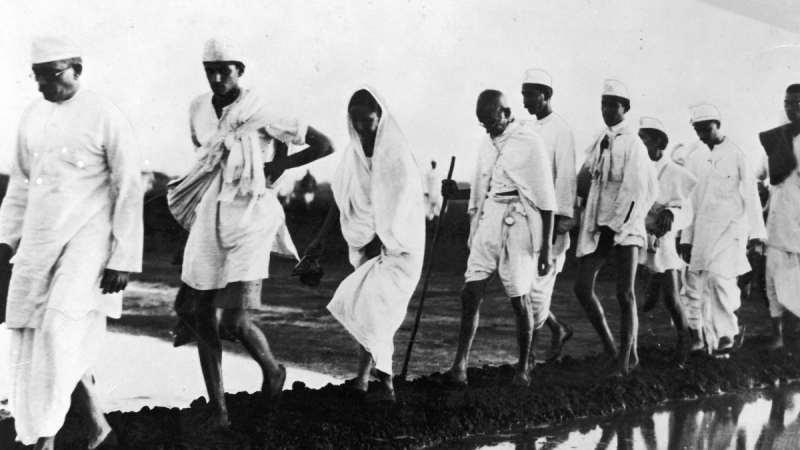
Photo: https://www.history.com/ 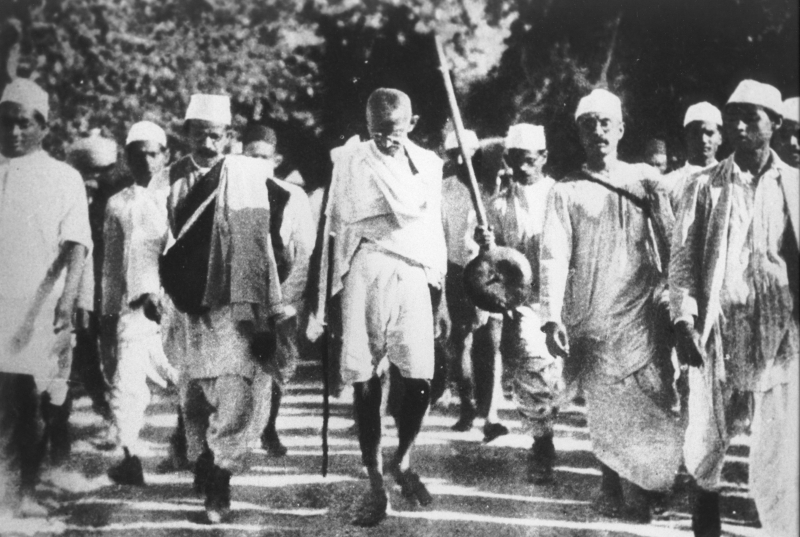
Photo: https://en.wikipedia.org/ -
On January 30, 1948, a Hindu nationalist shot three bullets into Gandhi's chest, killing him. He was killed by Nathuram Godse. The light has left our lives, and there is darkness everywhere, the late Prime Minister Jawaharlal Nehru declared when he announced his death. The National Gandhi Museum was established following his passing. In India, the 2nd of October is observed as a national holiday in his honor. Moreover, today is the International Day Against Violence.
Gandhi was viewed by the British with a mixture of admiration, amusement, perplexity, distrust, and hatred. The British tended to view him, except for a small group of Christian missionaries and radical socialists, as, at best, a utopian visionary and, at worst, a crafty hypocrite whose claims to affinity with the British race were a cover for subverting the British raj. Gandhi was aware that there was a prejudice wall in place, and the goal of satyagraha was to break through it.
Gandhi's reputation as a great conciliator and mediator was established through research in the second part of the 20th century. His skills in that area were put to use in conflicts involving older, moderate politicians and young radicals, political terrorists and lawmakers, urban intellectuals and rural populaces, traditionalists and modernists, caste Hindus and Dalits, Hindus and Muslims, and Indians and the British, among others.
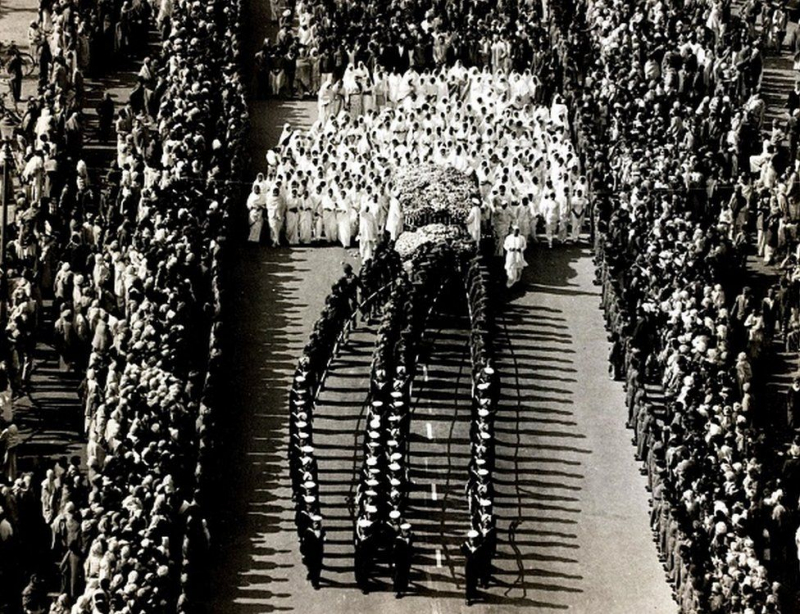
Photo: https://www.bbc.com/ 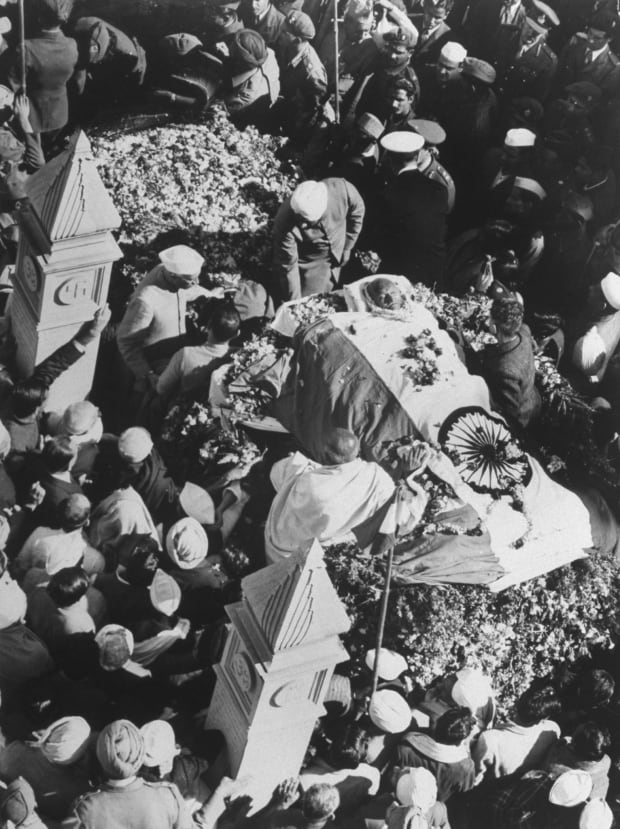
Photo: https://www.biography.com/




























